World Youth Skills Day: The fires of war won’t kill learning for young Sudanese
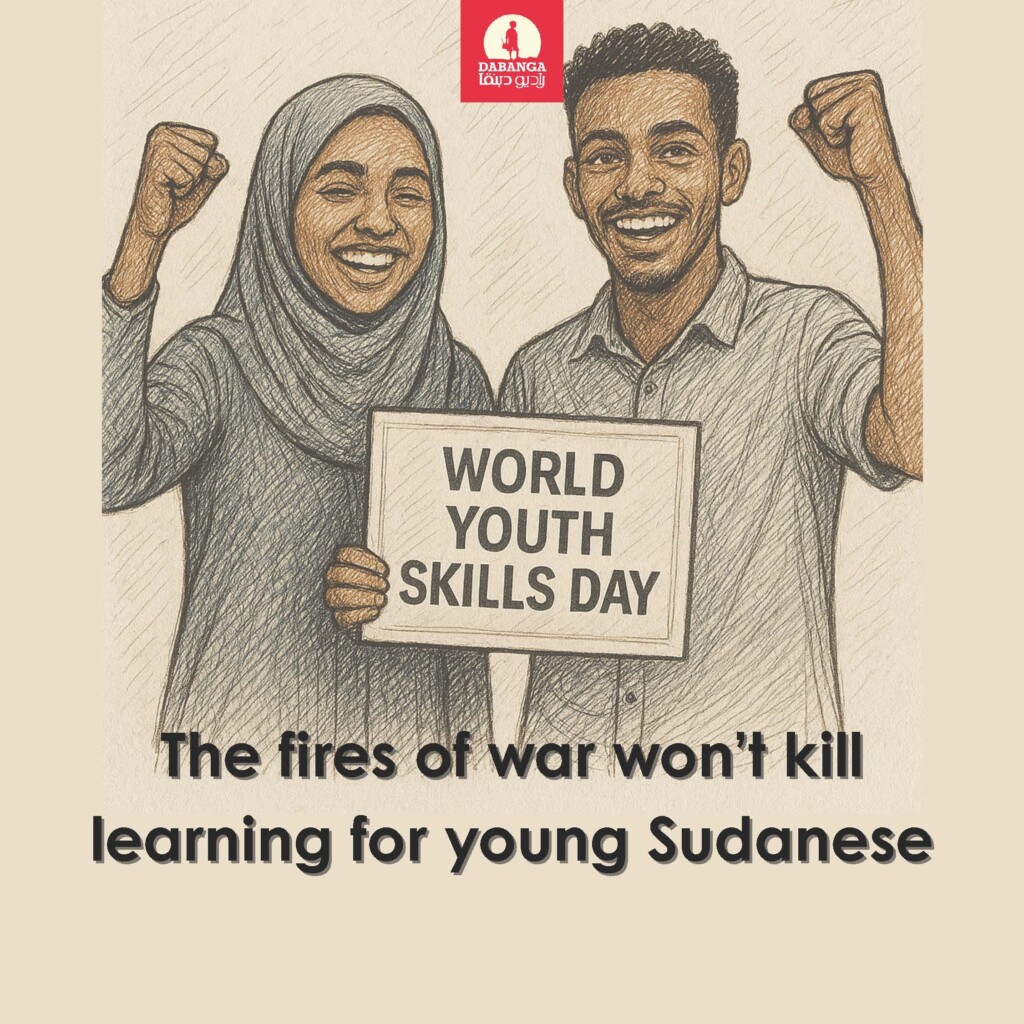
Image: RD (AI tools utilised) - scroll down to see more at base of this article...
On 15 July, the world marks World Youth Skills Day, under the theme “Youth Empowerment through AI and Digital Skills,” millions of Sudanese youth remain cut off from education, vocational training, and digital access. While the international community commits to building a better future by supporting youth skills, prolonged conflict and mass displacement have denied young Sudanese even the most basic tools for self-development.
Observed across the globe, this day acknowledges the important role of youth in the development of a better world, celebrating the agency young people have for bringing about positive change. It also marks a commitment to supporting young people in building skill sets that will serve them in the future.
According to the Norwegian Refugee Council (NRC), over 17 million children in Sudan are currently out of school, representing 90 per cent of the country’s school-age population. Nationwide exams were suspended in 14 of Sudan’s 18 states due to insecurity, while schools have been bombed, looted, or repurposed as military bases. The NRC warns of a “lost generation” if education and skill-building do not resume at scale.
Yet, amid displacement and limited infrastructure, Sudanese youth continue to seek learning pathways where they can. One of the most impactful examples is the UNITAR Rapid Assistance Programme for Sudan (2024–2025), a Japan-funded online training initiative designed to support displaced youths and women. Launched in August 2024, the first phase enrolled 250 participants, offering training in business modelling, entrepreneurship, and digital innovation under the theme Resilient Growth for Prosperous Futures. “Leaving my home due to conflict was incredibly difficult, and I felt lost and uncertain about the future,” reflected participant Khadija Adam Ahmed. “This programme helped me regain my footing. I realised there are opportunities beyond traditional government jobs. The training gave me practical business skills and a renewed sense of hope.”
Phase two, launched in early 2025, provided the top 40 graduates with mentorship, pitch sessions, and a virtual hackathon with Sudanese and regional entrepreneurs. By March, Phase three brought 20 finalists before international business panels for potential funding and collaboration. The programme exemplifies how targeted, inclusive, and tech-driven models can support displaced youth despite war.
Alongside UNITAR’s digital initiative, other institutions have focused on practical, location-based vocational training, the launch of two UNESCO, in partnership with the Italian Agency for Development Cooperation (AICS),vocational training centres in Port Sudan and Kassala in 2024. These centres prioritise youth with disabilities and displaced learners, offering training in trades and digital literacy, tailored to crisis conditions. The initiative responds to the urgent need for skills-based recovery and inclusion in underserved areas.
According to the UNICEF Youth Skills report, major barriers remain. Many youths face multiple displacements, lack legal documentation, and reside in conflict-affected or inaccessible areas. Digital skills, though urgent, are largely inaccessible in much of Sudan due to limited connectivity, security risks, and economic instability. Nearly three out of four youth globally lack employability skills, and in Sudan, the gap is growing at an alarming rate.
While various training programmes have emerged since the start of the conflict, their coverage remains limited relative to the scale of need. Access to vocational and digital skills development in Sudan continues to depend on factors such as security, displacement status, infrastructure, and available funding. As long as these challenges persist, widespread access to skill-building opportunities will remain uneven.
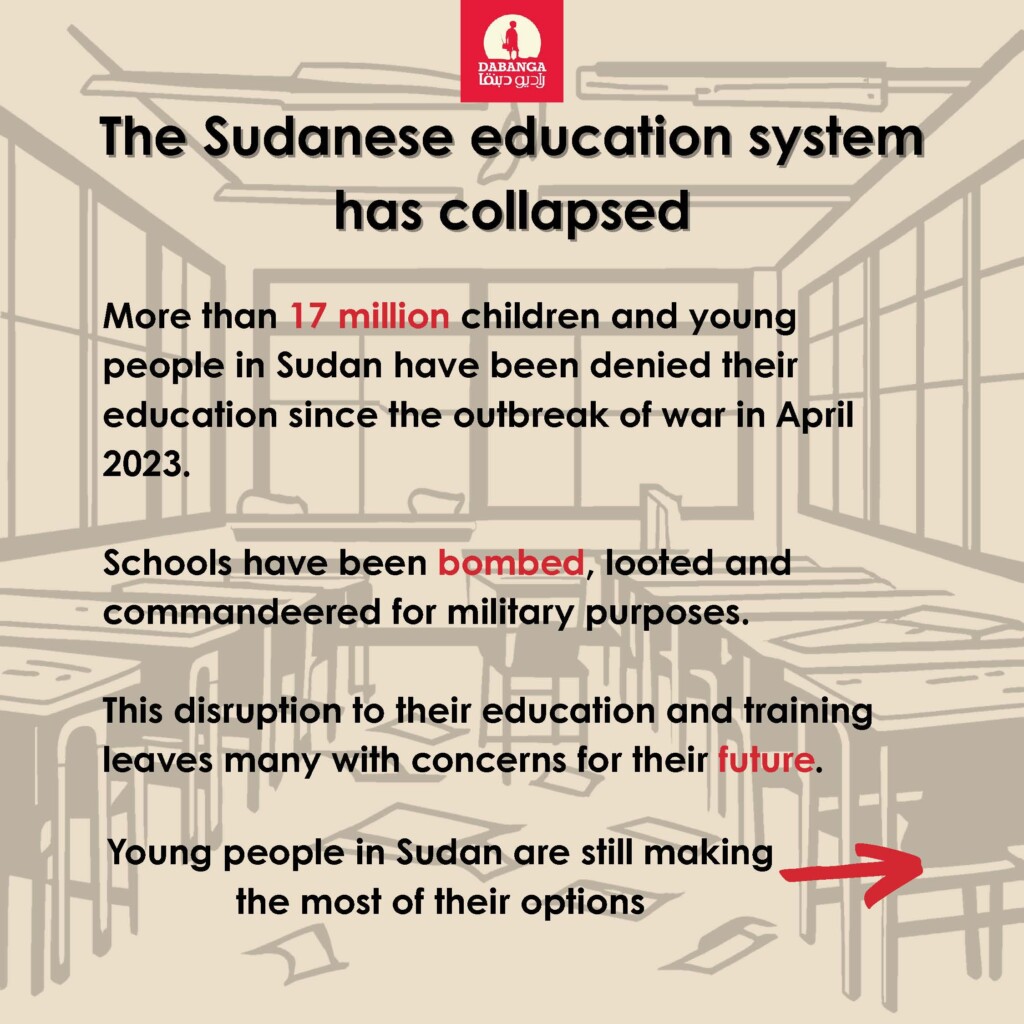
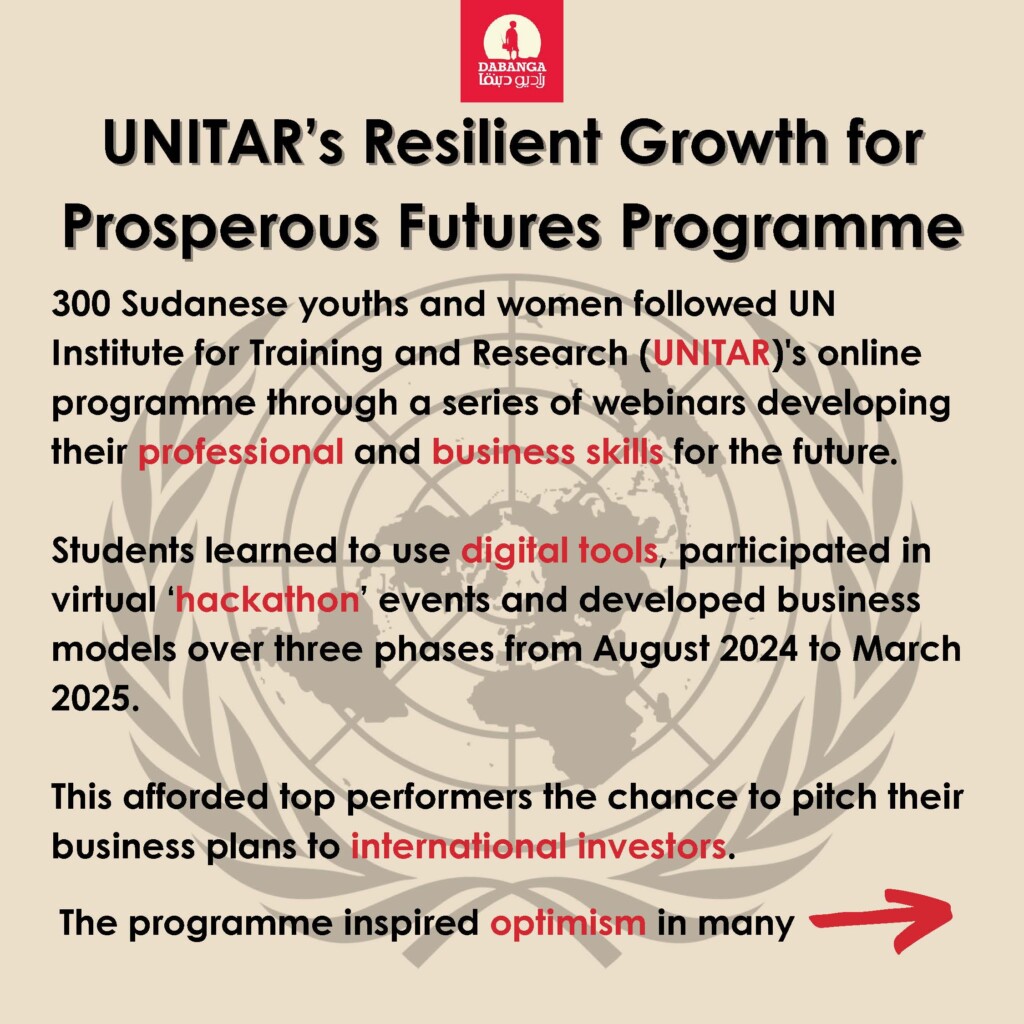
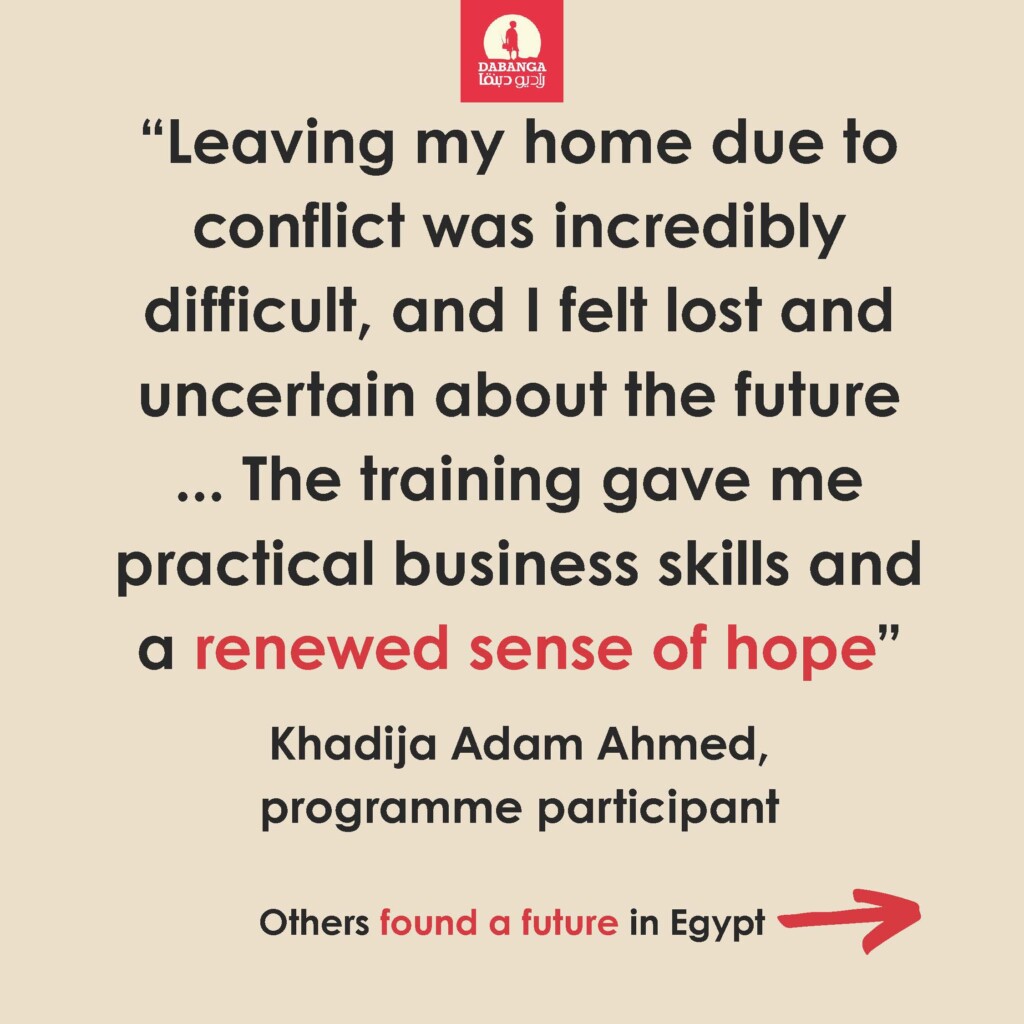
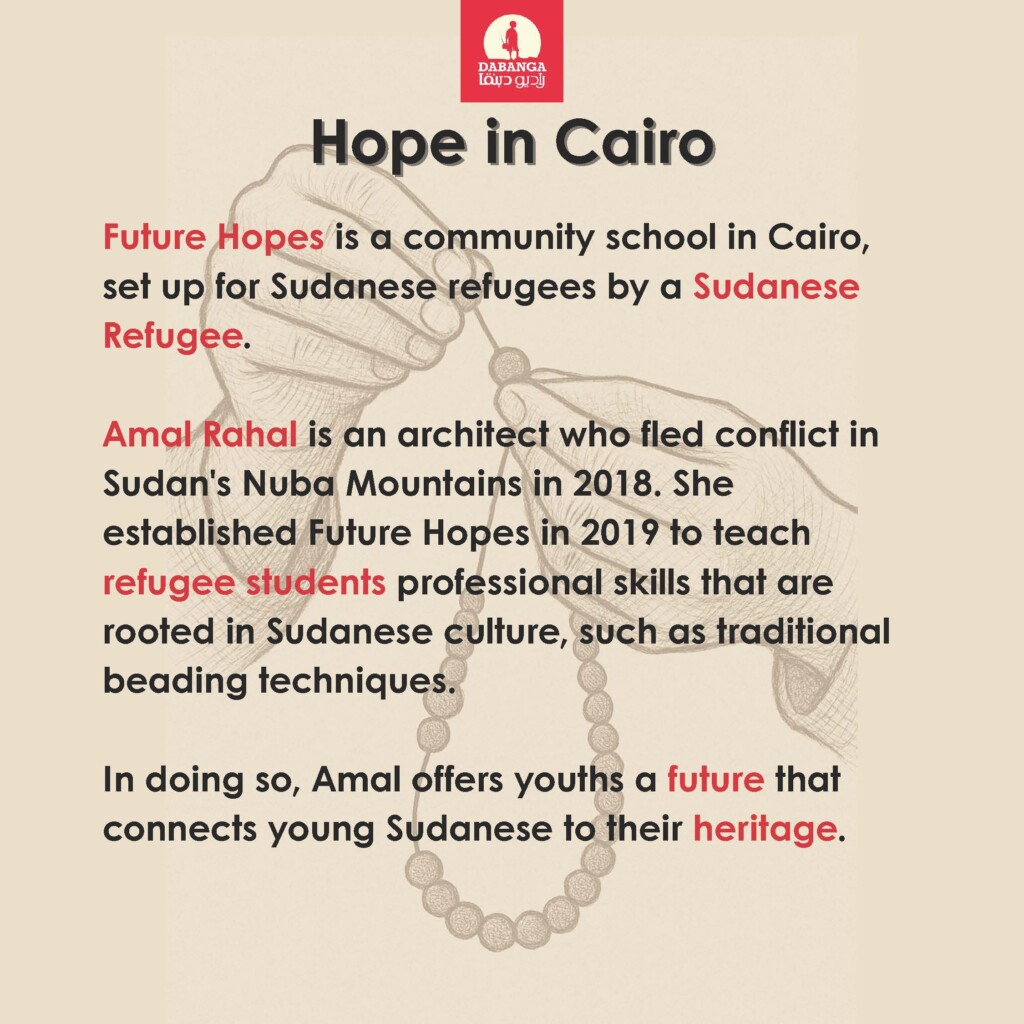
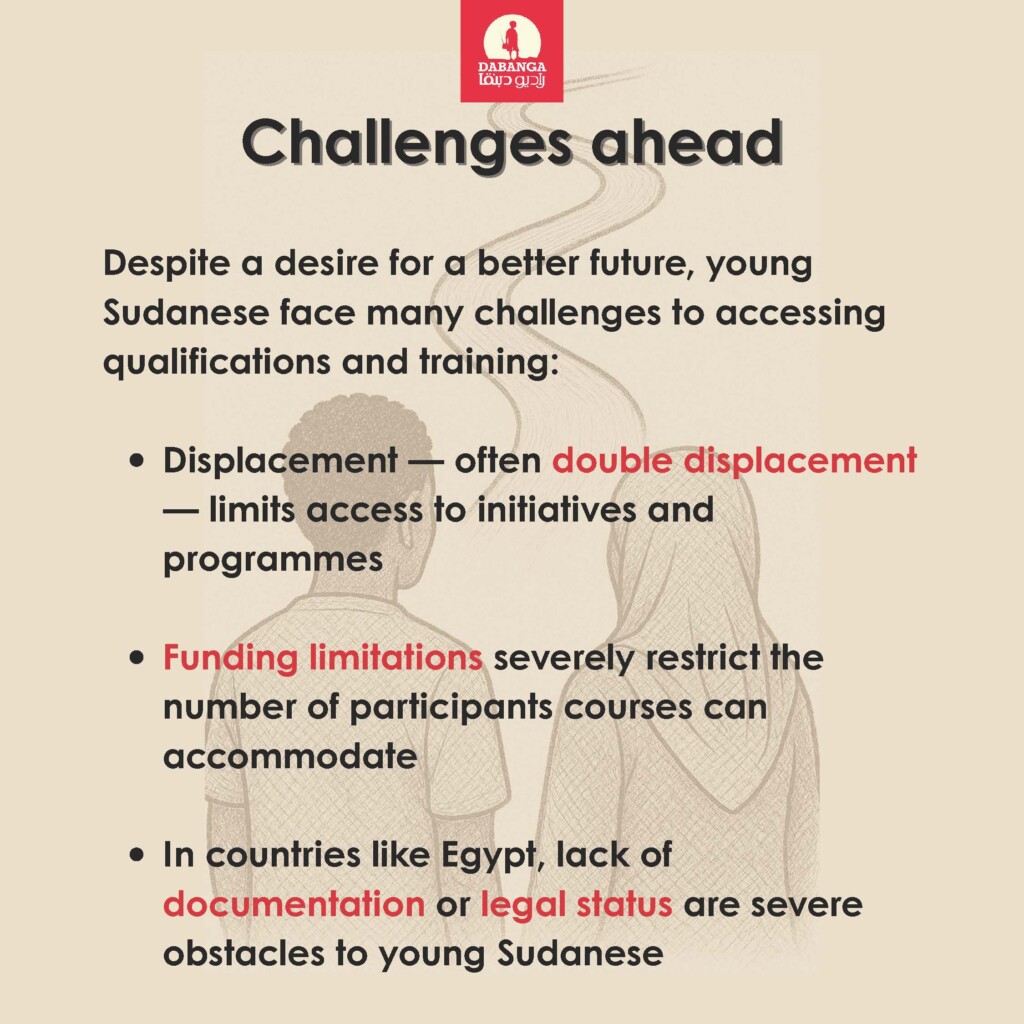
#Sudan #worldyouthskillsday2025 #sudannews #standwithsudan #sudanwar #youthskills











 and then
and then